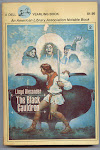Last week I watched Part 1 of the PBS film "The Journey Of the Corps Of Discovery," written by Dayton Duncan. Last night I watched Part 2. Of course, it was mostly scenery and pictures of Indians, Lewis, Clark and Jefferson, but it was narrated by several writers including Duncan, Stephen Ambrose, and William Least Heat-Moon.
The film was produced by Duncan and Ken Burns in 1997, but I hadn't seen it before. I had read Ambrose's book. Anything about the expedition is marred for me by knowing that it must end with Lewis' shooting himself. Only some sources say that he may have been murdered. Either way, he suffered terrible depression, and it's a sad denouement to the story.
Another bothersome fact was that William Clark took his slave called York on the trip. There were about 40 members of the expedition, and they lost only one man who died of a disease early in the journey. In the end, every man was given large plots of land and other valuables. Except York. York got nothing. Years later, Clark did grudgingly give him his freedom.
On several occasions, Sacajawea and other Indian women saved the explorers from suspicious native Americans. There really was a Nez Perce chief named Twisted Hair, which reminded me of a book I had read based on the Twisted-Hair-storyteller legend. In the book, a Twisted Hair wandered all over the West telling the Indians that the end of the world was coming. Of course, he meant the white men, the end of the Indians' world.
Wednesday, July 17, 2013
Lewis & Clark
Posted by Joanne Cage --
Joanne Cage
at
8:52 AM
![]()
Subscribe to:
Post Comments (Atom)













2 comments:
I saw that a few years ago! Fascinating. It's very hard for me to understand what that expedition must have been like. I've read that even the forests were very different then - less underbrush due to periodic fires from lightning and native Americans.
Vann and I saw it several years ago. He was a L&C enthusiast. I watched part of it this time. The thing about York always makes me mad, and Merriwether Lewis's suicide makes me sad. Clark promised York his freedom as soon as they returned, but then refused until years later.
Post a Comment